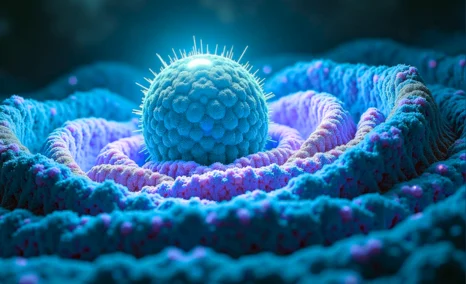CDK 4/6 Inhibitors- The Changing Paradigm for Breast Cancer Treatment
Aug 04, 2017
The discovery of Cyclin Dependent Kinases (CDKs) is a result of increasing number of cancer cases worldwide. The development of CDKs has changed the paradigm for cancer treatment and it has gradually become an interesting area of research in oncology. The research on CDK inhibitors gained momentum because of the frequent perturbations in human malignancy and the activity of CDK inhibitors in the induction of apoptosis during cell cycle arrest. The major focus is to develop first generation CDK 4/6 inhibitors and then proceed to second generation as they are more efficient and less toxic antineoplastic agents than molecules targeting other CDKs as per the DelveInsight’s report.
Breast Cancer is the most common cancer in women worldwide and is considered as the second most prevalent form of cancer. According to the American Cancer Society, around 25% breast cancer cases have been reported globally so far in 2017 with around 252,710 cases of invasive breast cancer and 63,410 of non-invasive breast cancer in US. The inhibition of CDKs by restoring the antigrowth signaling is the “Hallmark of Cancer Treatment” and this concept is being utilized for the establishment of CDK 4/6 inhibitors as the new and emerging strategy for the treatment of breast cancer.
Therapeutic development of some CDK 4/6 inhibitors, including Piramal’s P276-00, MetaMax’s MM-D37K, Roche’s R547 and many others had been terminated during their clinical studies. The failure lied in the safety and efficacy outcomes of the drugs. Then in February 2015, with the launch of IBRANCE (Pfizer) emerged as one of the biggest star in the field of CDK 4/6 inhibitor therapeutics. The market of CDK 4/6 inhibitors for breast cancer has been occupied by Pfizer’s IBRANCE alone since last two years, followed by the launch of KISQALI (ribociclib) by Novartis in March 2017. KISQALI will prove as the first-line effective method of treatment for cancer after IBRANCE.
Downloads
Click Here To Get the Article in PDF
Recent Articles
- New Asundexian Phase III Study Result; Zibotentan/Dapagliflozin Combination Demonstrated Signific...
- Cancer Biomarkers: Improving Treatment and Detection
- Roche’s TECENTRIQ HYBREZA: Setting New Standards as the First Subcutaneous Anti-PD-(L)1 Drug
- Non-small cell lung cancer emerging therapies
- Novel Mutation-Targeting Therapies in the Horizon to Relieve the Global Healthcare Burden NSCLC P...
The future of novel targeted therapies for breast cancer treatment almost relies on the use of CDK 4/6 inhibitors. The increasing patient population with breast cancer has led to the emphasis on the advancement of CDK 4/6 inhibitors as an emerging research area. Some of the pipeline CDK 4/6 inhibitor drugs currently being evaluated in clinical and pre-clinical stages of development include products like G1 Therapeutic’s G1T28; Tragara’s TG-02; Onconova’s ON 123300, and many more. The upcoming CDK 4/6 inhibitor, Abemaciclib by Eli Lilly targeting Metastatic breast cancer and Non-Small Cell Lung Cancer (NSCLC) has entered into Phase III clinical trials and is expected to emerge as the third most selective inhibitor of CDK 4/6 inhibitor after IBRANCE and KISQALI. The expanded knowledge and therapeutic research has greatly influenced the growth of CDK 4/6 inhibitors as anti-cancer therapy for the treatment of breast cancer.
Downloads
Article in PDF
Recent Articles
- Byondis’s HER2-targeting ADC trastuzumab duocarmazine; AbbVie Migraine Drug Atogepant; Grünenthal...
- Metastatic HER2-Positive Breast Cancer Infographic
- 8 Emerging Bispecific Antibodies Transforming NSCLC Treatment
- GE Healthcare-Optellum’s collaboration; Ocugen’s Covid-19 vaccine trial; Blueprint to acqui...
- Breast Cancer Insights: Identifying Symptoms and Protecting Your Health




